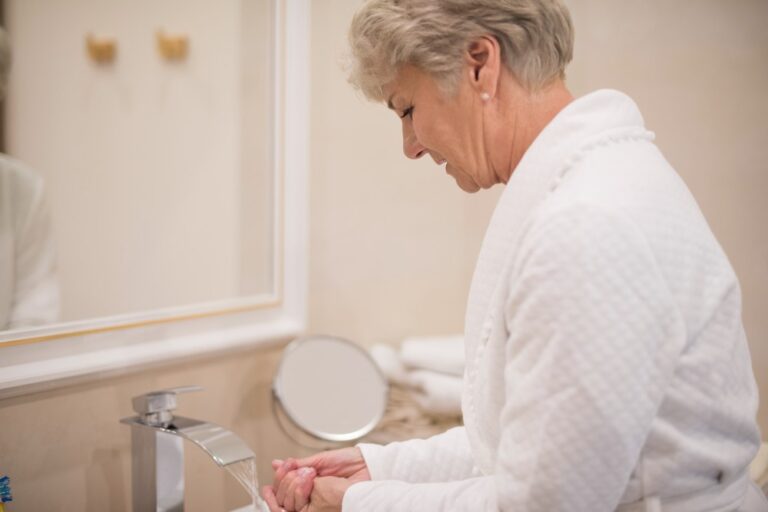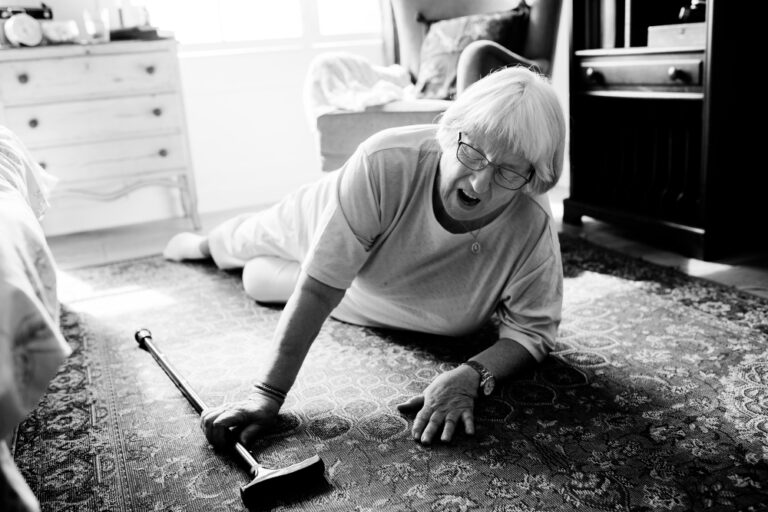Table of Contents
- Ageism and a Lost Sense of Purpose
- Financial Insecurity
- Difficulty with Everyday Tasks and Mobility
- Finding the Right Care Provision
- Access to Healthcare Services
- End of Life Preparations
- Conclusion
It is well known that as a society we are living much longer thanks to improved living conditions and health care. While being able to reach old age is something to be thankful for, in many ways, there are several challenges facing the elderly, which we all need to pay more attention to. Often it is not until we start to age ourselves or we see a loved one struggling with a problem that we sit up and take notice, but as a society, we can do more to make life easier for our aging population. This article outlines the biggest challenges that elderly people face today and how we can support them and enable them to age with dignity.
Ageism and a Lost Sense of Purpose
There are lots of outdated stereotypes about elderly people, which can lead to isolation and marginalization in a lot of communities. By coming up with innovative ways to involve older people in the community through social events, we can not only help them to maintain a sense of identity and self-esteem but also tap into the wealth of knowledge and experience they have, which is so vital for the development of society.
Combating Ageism
- Promote Intergenerational Activities: Encourage events and programs that bring together people of all ages.
- Highlight Contributions: Showcase stories and achievements of elderly individuals to challenge stereotypes.
- Education and Awareness: Implement educational programs to foster understanding and respect for the elderly.
Financial Insecurity
While we are living longer, unfortunately, the world of employment and retirement has not evolved at the same pace. Many elderly people are able and more than willing to work past the standard retirement age, but the opportunities are not there. In addition, managing day-to-day finances and planning for later life can be challenging for older generations as much is now done online or remotely. This can also leave them more vulnerable to fraud and scams.
Addressing Financial Challenges
- Flexible Employment Opportunities: Create job opportunities that cater to the skills and needs of older adults.
- Financial Education: Provide resources and workshops to help elderly individuals manage their finances.
- Fraud Prevention Programs: Implement initiatives to protect seniors from scams and financial abuse.
Difficulty with Everyday Tasks and Mobility
A person’s mobility and dexterity will naturally decline as they age, which makes completing everyday tasks more difficult. This can gradually cause people to struggle with self-care and prevents them from being social, pursuing interests, or taking part in activities they enjoy. More support is needed to enable elderly people not only to live independently through products and programs which focus on safety, balance, fitness, and mobility but also to ensure they can continue to thrive as individuals.
Learn More: The 13 Most Common Health Concerns That Seniors Face
Enhancing Mobility and Independence
- Home Modifications: Make necessary changes to homes to improve safety and accessibility.
- Assistive Devices: Provide tools and devices that aid in mobility and daily tasks.
- Fitness Programs: Offer exercise classes tailored to the needs of the elderly to maintain strength and balance.
Finding the Right Care Provision
When complete independence is no longer practical, many elderly people require additional care. Sometimes this care can be provided by family members, but this can place a lot of strain on the caregiver in terms of balancing this with work and other family responsibilities. These caregivers need to be given the training, resources, and emotional support necessary to help them deliver the best care for their loved ones and themselves.
Supporting Caregivers
- Training and Resources: Provide comprehensive training and resources for family caregivers.
- Respite Care: Offer temporary relief for caregivers to reduce burnout and stress.
- Support Groups: Establish support networks for caregivers to share experiences and advice.
In some cases, it is more appropriate for a professional caregiver to be employed on a regular basis, especially when there are complex medical conditions and/or physical disabilities. With a comprehensive elder care service, the elderly person is able to remain in their own home.
Access to Healthcare Services
Healthcare can be complicated and disjointed for elderly people, especially for those struggling with long-term conditions. The care requires lots of different medical professionals and clinics to coordinate delivery of medication and other types of care.
Improving Healthcare Access
- Integrated Care Models: Develop systems that ensure seamless communication between healthcare providers.
- Telehealth Services: Expand telehealth options to provide convenient access to medical consultations.
- Transportation Services: Offer transportation assistance to help elderly individuals attend medical appointments.
End of Life Preparations
We all need to prepare for the inevitable, but death is often a difficult topic for people to discuss or make plans for. Elderly individuals and their families need support when considering the end-of-life options available, financial implications, and how to ensure that the individual’s wishes are respected.
Facilitating End-of-Life Planning
- Advance Directives: Encourage the use of legal documents that outline end-of-life wishes.
- Counseling Services: Provide emotional support and counseling for individuals and families.
- Financial Planning: Offer resources to help families understand the costs and logistics of end-of-life care.
Learn More: The Interconnection of Mental and Physical Health
Conclusion
As our population ages, it is crucial to address the unique challenges faced by the elderly. By promoting inclusion, financial stability, mobility, proper care, healthcare access, and end-of-life planning, we can ensure that our elderly population can age with dignity and grace. Through community efforts and innovative solutions, we can create a society that values and supports its aging members.







